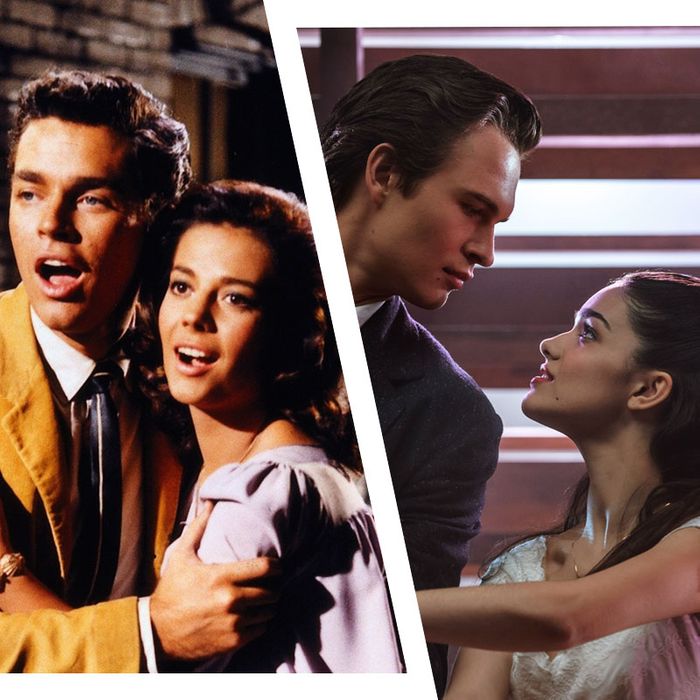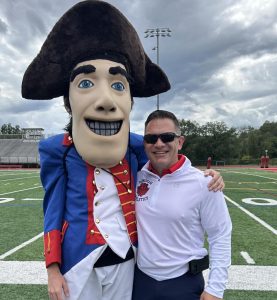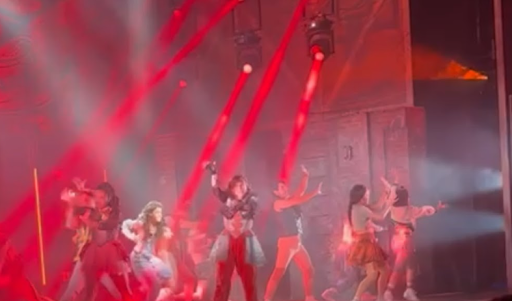West Side Story 1961 vs. 2021: A Comparison
Flash Tweedie January 4th, 2022
Photos by United Artists and Walt Disney Studios
Mariah and Tony; on the left (1961), on the right (2021) (Photos by United Artists and Walt Disney Studios)
January 24, 2022
This is an opinion article piece. Flash Tweedie is a student at Mendham. All opinions expressed in the following editorial are his own and do not necessarily reflect the views of the Patriot.
The Tony award-winning Broadway musical “West Side Story” was adapted into a motion picture in 1961. The film received enormous critical acclaim, winning 10 Oscars, including Best Picture of 1962, and is widely regarded as one of the most culturally impactful movies of all time. With so much love and appreciation shown for this classic, Steven Spielberg had a tall order when directing the remake which was scheduled for release in 2020, but due to the pandemic, was postponed until 2021.
So, 60 years later, has Spielberg managed to recapture the magic of the original?
The answer to that question is incredibly complicated, but suffice it to say, the remake struggles to give itself a strong identity while under the shadow of the original’s astounding quality. It is clear that Spielberg tried very hard to give the remake a unique identity, as many scenes, characters, and the general organization of the plot have been questionably altered. It is by no means unrecognizable from the original, but viewers of the 1961 film will find a significant tonal shift in the remake. It is difficult to say that any of these changes are made for the better because sadly much of the remake feels like filler that has been added just for the sake of making the story feel new, rather than making it more emotionally substantial.
One of the greatest failures of the movie is how the characters are written and performed. The Jets leader, Riff, is integral to the original story. He serves to highlight the gang’s motives and their overall misguided nature when contrasted with his best friend and ex-Jet member Tony, who is more pure in his actions. In the remake, the new portrayal of Riff (Mike Faist) is disappointing. Faist does not give off the slightly manic delusion that was necessary in warning the audience of his pretty nasty character. This makes Riff far less compelling, and also makes the contrast between him and Tony less noticeable.
Besides Riff, some changes are somewhat baffling. For example the numbers “I Feel Pretty” and “Cool” are swapped in position, diminishing both numbers’ relevance in the plot and emotional weight. The most disappointing change in particular that harms the movie more than any other is the absence of Doc, a character who served to build the relationship and identity of the two gangs and to complete Tony’s character arc. The absence of Doc is strongly felt in the movie, and his replacement, which is his wife Valentina, played by Rita Moreno (who in the original film played the character Anita), does not build the same emotional beats that made the first film absolutely heartbreaking. In the 1961 adaptation, Doc, played by Kevin Young, does a very good job of portraying a tired old man who struggles to handle the growing conflict in his neighborhood. He tries as hard as he can to be supportive to the Jets and to offer them a place to hang out, but as the Jets show their true colors Doc becomes less and less understanding. This culminates in the best scene in the movie in which he has to tell Tony that Maria, the woman he is madly in love with, was murdered. When he breaks the news to Tony, Tony denies it and tries to change the subject, which makes Doc so furious that he slaps Tony, showing that the weight of the situation and the betrayals he suffered had become too much for him to take. This emotional impact Doc and his relationship with the Jets made in the original is barely touched upon in the remake.

To try and showcase emotional depth in Valentina, near the end of the film she sings the song “Somewhere”, a song which was originally sung by Tony and Maria. Valentina singing this song doesn’t make much thematic sense given the context of the song. In the 1961 film, “Somewhere” is a song that is meant to solidify the bond between Tony and Maria before Tony meets his fate. The song is tragic because it encapsulates the main theme of the story which is that people must always have hope no matter how bleak the future looks. In the song, Tony and Maria promise each other that they will find a way to be with each other despite the near impossibility of that ever coming to pass. The song is especially sad when the audience eventually finds out that soon after the couple sings the song, Tony will be murdered. By having Valentina sing this song, the thematic weight is missing, and an incredibly important moment between Tony and Maria is lost. This is because she is instead singing to her deceased husband, Doc, which fails to create a strong emotional reaction from the audience because they have never shown Doc and Valentina’s relationship in the film.
The remake of West Side Story makes troubling tonal, character, and thematic changes to the story that sadly makes it a less compelling movie than the original. Despite the film being broader in scope with larger and more extravagant set pieces, it still lacks the emotional impact that the brilliant dialogue and the direction of the first film delivered so well. The film is so obsessed with trying to top the original through changes that feel more like filler than substantial edits to the plot, and the emotional beats fail to deliver due to somewhat disappointing script changes and songs that don’t fulfill their original purpose. In short, if you are ever looking to watch West Side Story, the original is definitely the best experience.









